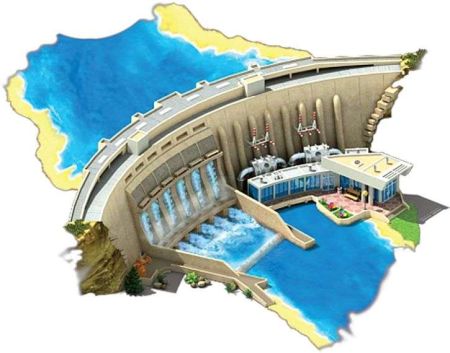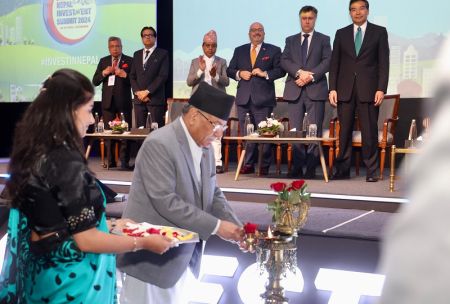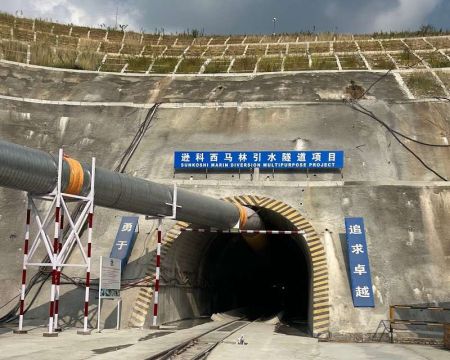The budget for fiscal year 2011/12 has once again proposed the establishment of High-Level Public Enterprises Management Board. The board will try and ensure efficiency of public enterprises. However, this year’s budget has also mentioned a policy to disinvest the government shares among general public.
The latest budget is a step backward on privatisation policy adopted by previous governments. The budget presented by Dr Ram Sharan Mahat for the fiscal year 2007/08 had proposed a gradual privatisation of the state-owned enterprises. Then, the budget of 2008/09 presented by Dr Baburam Bhattarai of the UCPN-Maoist led government reversed the policy of privatisation. Next year’s budget by Surendra Pandey gave continuity to Bhattarai’s agenda to increase investments in government corporations. Economic experts had argued against increasing the investment in state-owned enterprises instead of taking up privatisation measures.
Though there were attempts of privatisation during the Panchayat system, they were unsuccessful.. The concept of socialism faded and liberalisation came into picture after the fall of communism in Eastern Europe. Nepal could not avoid the influences of the global change. There was massive change in Nepali economic policy with the restoration of democracy as the process of privatisation of public enterprises began after 1991. Experts have it that the new initiative was taken mainly because of the pressure from IMF, The World Bank and other donors. The change was incorporated in the White Paper published by the Girija Prasad Koirala government in 1991. The policy tried to balance the public and private sectors.
The Koirala government emphasised on selling the shares of public enterprises at the stock market. That was aimed at widening the ownership of the newly-privatised corporations and also to ensure competition for companies as well as consumers.
Harisiddhi Brick and Tile Factory, Bhrikuti Paper and Pulp Factory and Bansbari Leather and Shoe Factory were privatised in the first phase. In 1993 and 1994, 14 companies were selected for privatisation. Seven of them were wholly government-owned while the rest had joint-ownership with the private sector. Similarly, in the second phase, Balaju Textile Factory, Nepal Film Development Corporation, Nepal Lube Oil, Bitumen and Barrel Industry and Raw Hide Collection and Development Corporation were privatised. Likewise, Jute Development and Trading Corporation and Tobacco Development Company were liquidated.
The policy took a different turn when the Communist Party of Nepal (UML) came to power in 1994. Unlike the Nepali Congress, the UML government favoured public enterprises. The budget speech of the same year read, “To lessen the financial burden of the government, a privatisation program based on economic policies of the government will be implemented. There will be separate listing of corporations that are to be privatised and those that will not be privatised. The privatisation programme will be expedited for those corporations included in the privatisation lists.†However the government policy could not take off as the government did not even list the companies for privatisation. Further privatisation was certainly out of question. The budget of 2001/02 tried to be most intensive and aggressive towards public enterprises. The budget presented by Dr Ram Sharan Mahat promised to set up a separate unit in the Ministry of Industry, Commerce and Supplies to coordinate and monitor the price, quality and quantity of goods and services produced by the public sector. This budget also decided to prepare strategic and organisational planning to reform managerial, accounting and financial systems of the public enterprises. Most remarkably, it also decided to convert state-owned enterprises into companies curtailing the number of board members, their functions and duties to ensure professionalism.
On minimising the cost to government, the budget presented by Dr Mahat read, “The tendency of increasing short-term benefits by neglecting social security in public enterprises and development boards will be discouraged.†He proposed the provision to manage pension and gratuity compulsorily through Citizen Investment Trust. Likewise, the executive chief was made liable for creating any new financial liabilities.
Another significant proposition by Dr Mahat was to encourage the private sector investment where the involvement of the government is deemed unnecessary and where there existed a high possibility of attracting private sector.
After 2001, 17 companies have been either liquidated or privatised. Nepal Telecommunication Company was the latest one to join the list in 2008 when its some shares were sold to the public. However, the privatisation process stalled completely after 2009/10 except for the sale of government shares of Small Farmer Development Bank to Small Farmers Cooperatives in 2010/11.






















